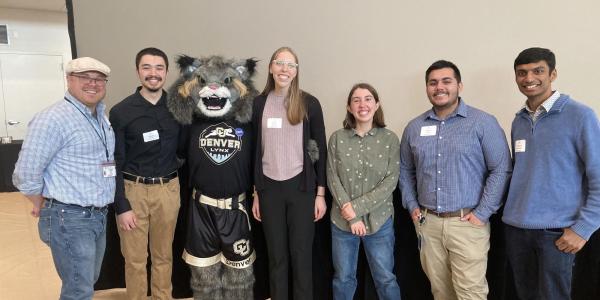The Knight Group
The Knight lab studies how proteins interact with cellular membrane surfaces using a variety of biochemical, spectroscopic, and microscopy-based approaches. We are particularly interested in proteins that carry out important steps in the pathway of insulin secretion and how these processes are disrupted in diabetes. Interested students are invited to email Dr. Knight a brief statement of your interest in research including career goals, a CV/resume, and an unofficial transcript.
The Vugmeyster Group
Vugmeyster’s lab focuses on biophysical characterization of proteins using solution and solid-state NMR, Transmission Electron Microscopy, Dynamics Light Scattering, HPLC and other approaches. In particular, we are interested in protein dynamics in model systems and in amyloid fibrils comprised of amyloid-beta protein, implicated in Alzheimer’s Disease. Undergraduate and master-level research students are trained on protein preparation and purification techniques, amyloid fibrils preparation, spectroscopic approaches, and computational modeling. Please see group web page for details.

